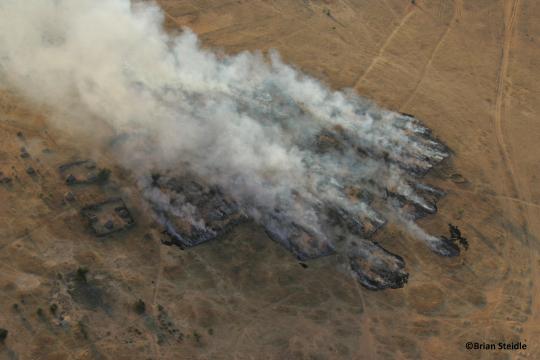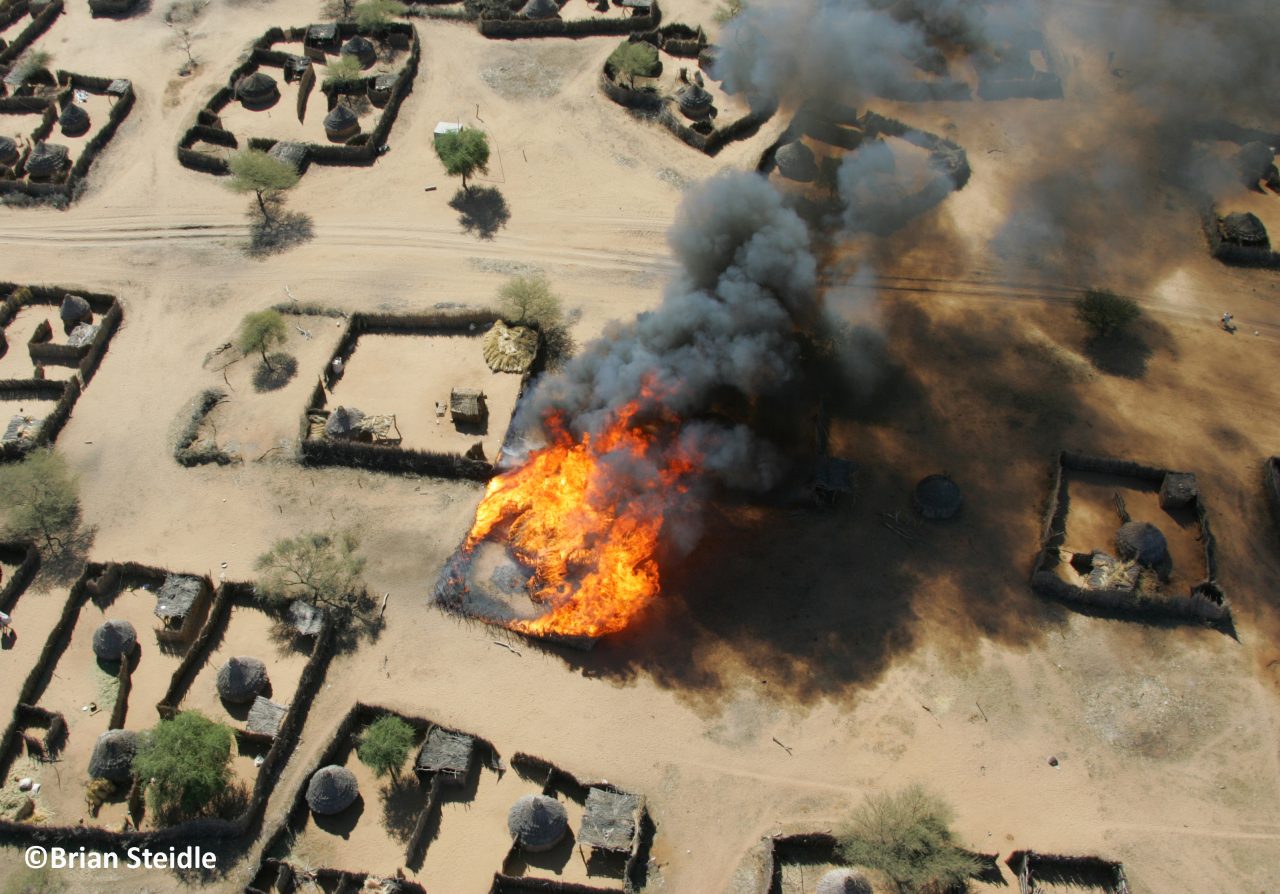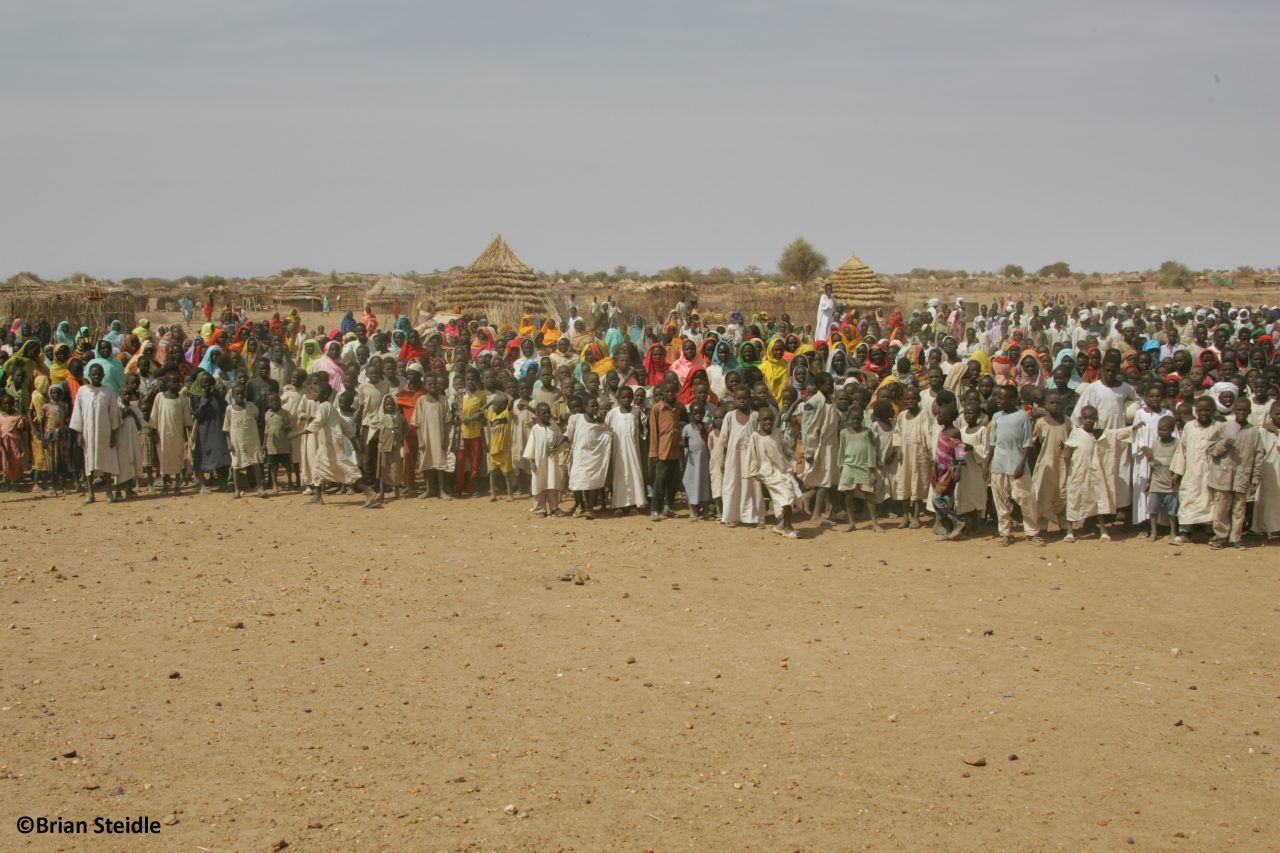23 July 2004: US Congress declares Darfur atrocities ‘genocide’
On 23 July 2004 the US Congress unanimously declared ongoing atrocities in Darfur to be genocide.

Destruction of a Darfuri village © Brian Steidle
By issuing a joint House-Senate resolution that accused the Sudanese leadership of such crimes, the United States delivered a message to the world that Sudan’s genocide in Darfur and countrywide persecution and atrocities must be stopped.
Darfur, a Westerly region of Sudan around the size of France, was racked by violence and civil war throughout the 1980s and 1990s. In 2003, Black African groups launched a violent rebellion against perceived Arab domination in Sudan by attacking military bases. Under the pretence of quelling this uprising, the government of Omar al-Bashir began a brutal war of retribution against the Black African Darfuri population. As well as using military aircraft to destroy the towns and villages of Darfur, the government unleashed the Janjaweed upon the civilian population. As recounted by survivors such as Halima Bashir and Daoud Hari, these Arab militias have ravaged the people of Darfur through a systematic campaign of rape, torture and murder.
In the summer of 2004, the US Secretary of State Colin Powell visited Darfur as part of a United States investigation into the atrocities. When a verdict of genocide was returned by the State Department to reinforce the Congress resolution of 23 July 2004, it seemed that America and other nations were prepared to take the necessary steps to stop the atrocities in Darfur. Yet the International Community have been unable to end the violence in Darfur.
On 9 July 2011 the South Sudanese people gained independence from the north but ethnic fighting across Darfur and South Sudan remain widespread. The situation continues to unfold.


